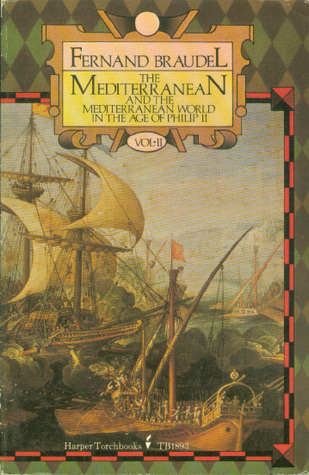The Mediterranean World in the Age of Philip II (part two)
 Braudel’s massive scholarly treatment of the Mediterranean from 1550 to 1600 is in three parts split between two volumes. However, even with part two being split between volumes, there is a change in direction at the volume break.
Braudel’s massive scholarly treatment of the Mediterranean from 1550 to 1600 is in three parts split between two volumes. However, even with part two being split between volumes, there is a change in direction at the volume break.
Part two deals with long term trends, and stuck to fairly abstruse subjects such as the economy in volume one. The first chapter in volume two is ‘Empires’. This is an examination of the two poles of the Mediterranean: Spain and the Ottomans. From there he looks at society, civilization and warfare before moving on to a more regular history of the period in part three. Being of the annales school of history, he is almost apologetic for including it, but argues that it has its place too.
In many ways, the centerpiece of part 3 is the battle of Lepanto. While the description of the battle itself only takes a couple of pages, an entire chapter is devoted to event around the battle. History has often recorded the battle as a great spectacle—which lead nowhere. Braudel argues that while it did not lead to further successes, it did bring the erosion of the Christian world to a halt, and break a defeatist sentiment that had taken root.
Like the first half, it is a truly massive undertaking, and well deserving of its status of one of the landmarks of 20th century historiography. It is by far the more readable and interesting half for the non-academic historian, but at the same time revealed less of the sixteenth century from its archives.

Discussion ¬